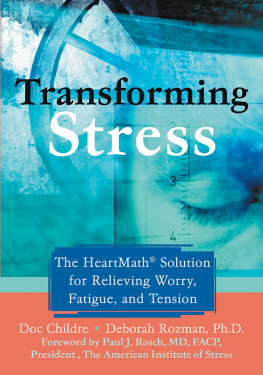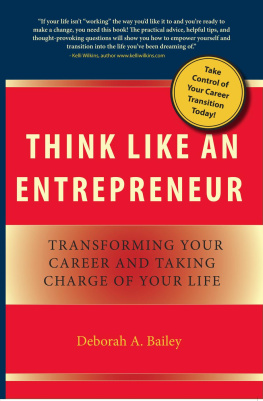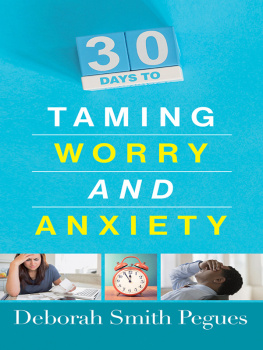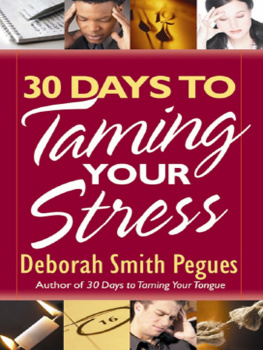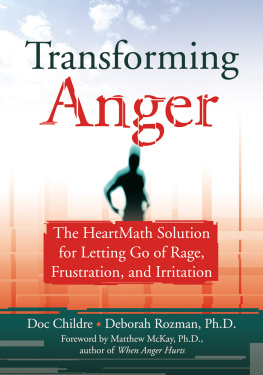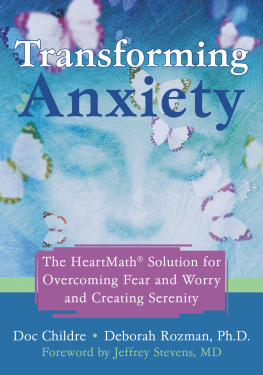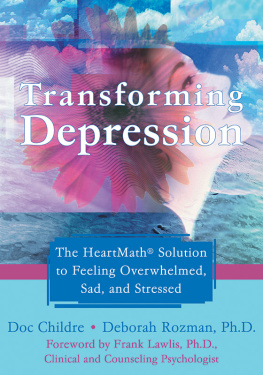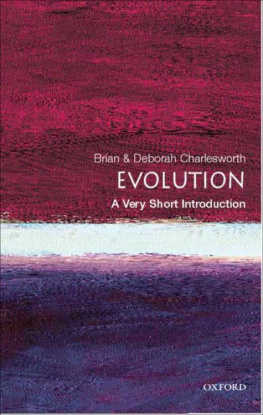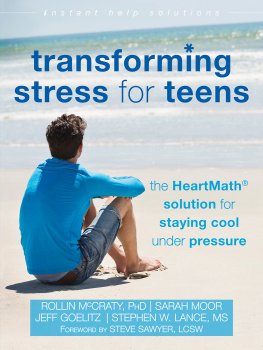Doc Childre and Deborah Rozman - Transforming Stress
Here you can read online Doc Childre and Deborah Rozman - Transforming Stress full text of the book (entire story) in english for free. Download pdf and epub, get meaning, cover and reviews about this ebook. year: 2011, publisher: New Harbinger Publications, Inc., genre: Religion. Description of the work, (preface) as well as reviews are available. Best literature library LitArk.com created for fans of good reading and offers a wide selection of genres:
Romance novel
Science fiction
Adventure
Detective
Science
History
Home and family
Prose
Art
Politics
Computer
Non-fiction
Religion
Business
Children
Humor
Choose a favorite category and find really read worthwhile books. Enjoy immersion in the world of imagination, feel the emotions of the characters or learn something new for yourself, make an fascinating discovery.
- Book:Transforming Stress
- Author:
- Publisher:New Harbinger Publications, Inc.
- Genre:
- Year:2011
- Rating:3 / 5
- Favourites:Add to favourites
- Your mark:
- 60
- 1
- 2
- 3
- 4
- 5
Transforming Stress: summary, description and annotation
We offer to read an annotation, description, summary or preface (depends on what the author of the book "Transforming Stress" wrote himself). If you haven't found the necessary information about the book — write in the comments, we will try to find it.
Transforming Stress — read online for free the complete book (whole text) full work
Below is the text of the book, divided by pages. System saving the place of the last page read, allows you to conveniently read the book "Transforming Stress" online for free, without having to search again every time where you left off. Put a bookmark, and you can go to the page where you finished reading at any time.
Font size:
Interval:
Bookmark:
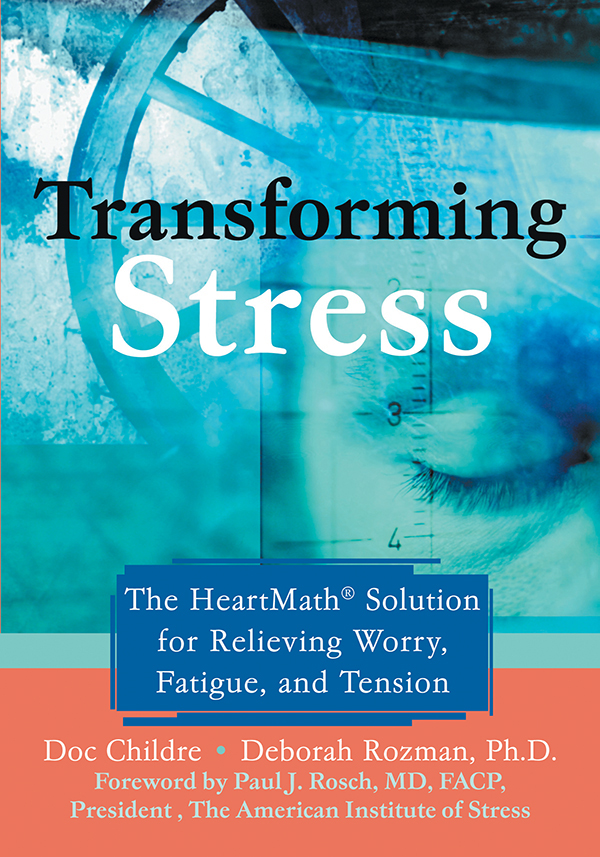
Stress and transformation are two unique concepts, but you cannot successfully manage the first without understanding and embracing the second. In this breakthrough book, longtime stress researchers Childre and Rozman show how anyone can take even the most debilitating forms of stress and transform or convert them into positive energy and feelings. The results are better performance and greater happiness in all aspects of your life. This book will change your life!
Charles B. Inlander, president of the Peoples Medical Society, coauthor of Stress: 63 Ways to Relieve the Tension and Stay Healthy, and cofounder of Stress Freedom United (www.stressfreedom.org).
HeartMath has clearly proven that your heart is the major reactor to stress, the key to understanding harmony between body, mind, and emotions. Nothing is more critical to life and health than transforming stress into a positive influence. HeartMath provides that path to transformation.
C. Norman Shealy, MD, Ph.D., founding president of the American Holistic Medical Association, president of the Holos University Graduate Seminary, author of 90 Days to Stress-Free Living, and coauthor with Carolyn Myss of The Creation of Health
Transforming Stress clearly leads the reader through the step-by-step process to release stress and anxiety, transforming that energy into peaceful, creative energy. I recommend this book to anyone who wants a solution!
Hale Dwoskin, author of New York Times best-selling The Sedona Method: Your Key to Lasting Happiness, Success, Peace, and Emotional Well-being
In these times of greatly increased perception of stress by all humans, the salvation of our species is likely to come from learning how to view the world through ones heart rather than just through ones head. Childre and Rozmans Transforming Stress teaches one how to do this in magnificent fashion. These are first-rate tools for self-healing and for learning how to become inner-self managed.
William A. Tiller, professor emeritus in the Department of Materials Science at Stanford University, research scientist, author, and physicist in the film What the Bleep Do We Know!?
Whether its forgiveness or stress management, we need, in addition to sound theory, effective tools with which to achieve the desired results. This groundbreaking book gives us both. Truly a breakthrough book on health.
Colin Tipping, author of Radical Forgiveness: Making Room for the Miracle and Spiritual Intelligence at Work
When I encountered HeartMath, I felt like I had received the operating manual for life. Transforming Stress simply and accessibly presents the scientific rationale, as well as the practical techniques, that underlie HeartMaths proven system. If you want to learn how to live authentically from the heart in a way that gives you control over your responses to a chaotic and changing world, read this book.
Nina Utne, chairperson of Utne magazine.
With the goal of controlling stress, reducing inner tension and achieving a sense of emotional regulation, HeartMath attempts to achieve a state of inner coherence by means of heart rate variability control. The HeartMath techniques laid out by authors Childre and Rozman in their new book, Transforming Stress, could prove to be an extremely valuable treatment alternative to doctor- and self-prescribed medicines and drugs, along with proper diet, sleep, and exercise, in a number of complicated physical and emotional conditions like anger management and anxiety, mood, post-traumatic stress, and attention-deficit disorders.
William C. Torch, MD, MSc., consultant in child and adult neurology, psychiatry and sleep disorders medicine and medical director of the Neurodevelopmental, Neurodiagnostic Center and the Washoe Sleep Disorders Center, both in Reno, NV
In todays fast-paced business world, even my most successful executive clients become overcommitted and overwhelmed. Transforming Stress offers easy-to-follow explanations and action steps that work for everyone. I am highly recommending this book to all of my clients!
Joan Eleanor Gustafson, international marketing leader, executive coach, and professional speaker
The business world is now often characterized by short-term and financially driven values. The outside world is increasingly characterized by ambiguity, complexity, speed, and unpredictability. It is perhaps not surprising that many individuals perceive this as threatening, which all too often leads to symptoms and conditions such as stress and anxiety. HeartMath has shown in research and case studies that there is a relationship between perception and physiology, and that we can influence both to have a significant and beneficial impact on these conditions. Few interventions have been shown to make such a positive and, equally important, sustained impact in these areas. Knowledge of HeartMath measurement techniques, monitoring strategies, and tools has transformed my clinical practice over the last few years in assisting individuals, teams, and businesses manage these costly issues.
Tony Yardley-Jones, FFOM, FRCS (Ed), Ph.D., specialist in occupational medicine, London, UK
Transforming Stress
Doc Childre and Deborah Rozman
New Harbinger Publications
Publishers Note
This publication is designed to provide accurate and authoritative information in regard to the subject matter covered. It is sold with the understanding that the publisher is not engaged in rendering psychological, financial, legal, or other professional services. If expert assistance or counseling is needed, the services of a competent professional should be sought.
HeartMath, Heart Lock-In, Freeze-Frame are registered trademarks of the Institue of HeartMath.
Quick Coherence and Attitude Breathing are registered trademarks of Doc Childre.
Freeze-Frame is a registered trademarks of Quantum Intech, Inc.
Distributed in Canada by Raincoast Books.
Copyright 2005 by Doc Childre and Deborah Rozman New Harbinger Publications, Inc.
5674 Shattuck Avenue
Oakland, CA 94609
Cover design by Amy Shoup
Acquired by Catharine Sutker
Edited by Jessica Beebe
Text design by Michele Waters-Kermes
ISBN: 1-57224-397-X Paperback
ISBN: 978-1-60882-431-1 Epub
All Rights Reserved
New Harbinger Publications Web site address: www.newharbinger.com
This book is dedicated to people who are looking for a clear way to find their own emotional empowerment in todays fast-paced world. Emotional empowerment can be achieved, resulting in tremendous individual stress reduction. The energy saved translates into increased happiness and an increased satisfaction with oneself. This empowerment comes from the alignment of the mind and emotions with the hearts intuition. Our intentionand the goal of our researchis to make it easier for people to connect with their intuition and the power of their heart to establish inner security. As people clean up their own stress mess, they raise their individual consciousness and the consciousness of the planetary whole: a mission thats deep within the heart of each of us, whether we know it or not.
Contents
The word stress has been used in physics for hundreds of years to describe an external force that produces distortion or strain in metals. However, seven decades ago, it was redefined by the brilliant Canadian researcher Hans Selye as the non-specific response of the body to any demand for change. At the time, it was widely believed that each disease had its own specific cause: for example, the tubercle bacillus and pneumococcus caused tuberculosis and pneumonia, and scurvy and rickets were due to specific vitamin deficiencies. What Selye proposed was just the opposite; namely, that very different physical and emotional challenges could produce the same stomach ulcerations and shrinkage of lymphoid tissue in laboratory animals. He also demonstrated that prolonged stress caused changes in other tissues similar to those seen in patients suffering from heart attacks, stroke, kidney disease, rheumatoid arthritis, and other disorders he labeled diseases of adaptation.
Next pageFont size:
Interval:
Bookmark:
Similar books «Transforming Stress»
Look at similar books to Transforming Stress. We have selected literature similar in name and meaning in the hope of providing readers with more options to find new, interesting, not yet read works.
Discussion, reviews of the book Transforming Stress and just readers' own opinions. Leave your comments, write what you think about the work, its meaning or the main characters. Specify what exactly you liked and what you didn't like, and why you think so.

